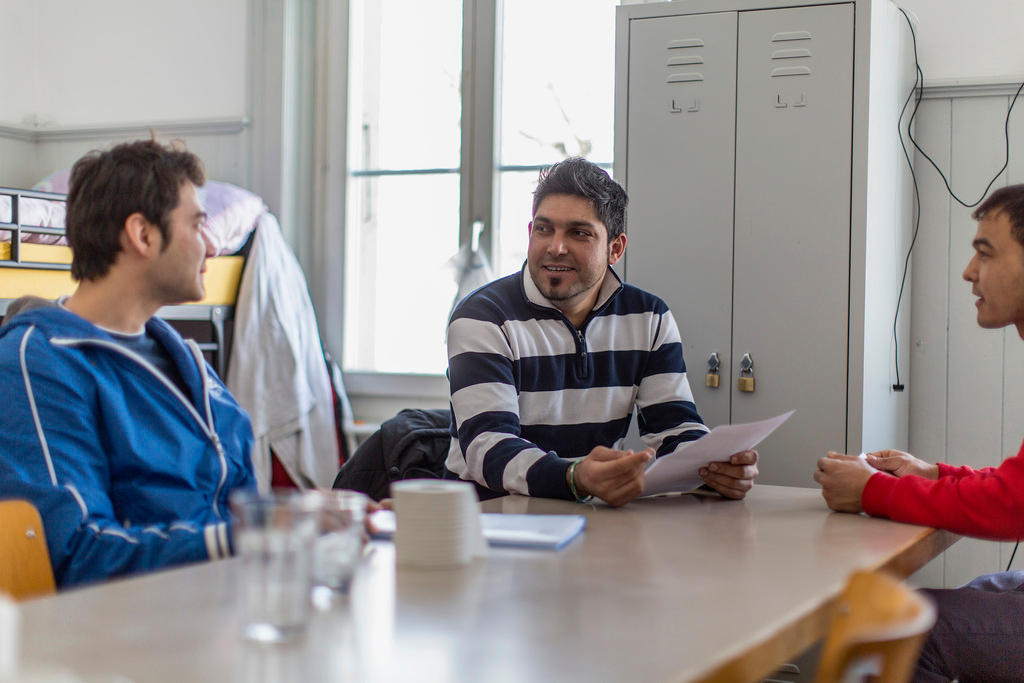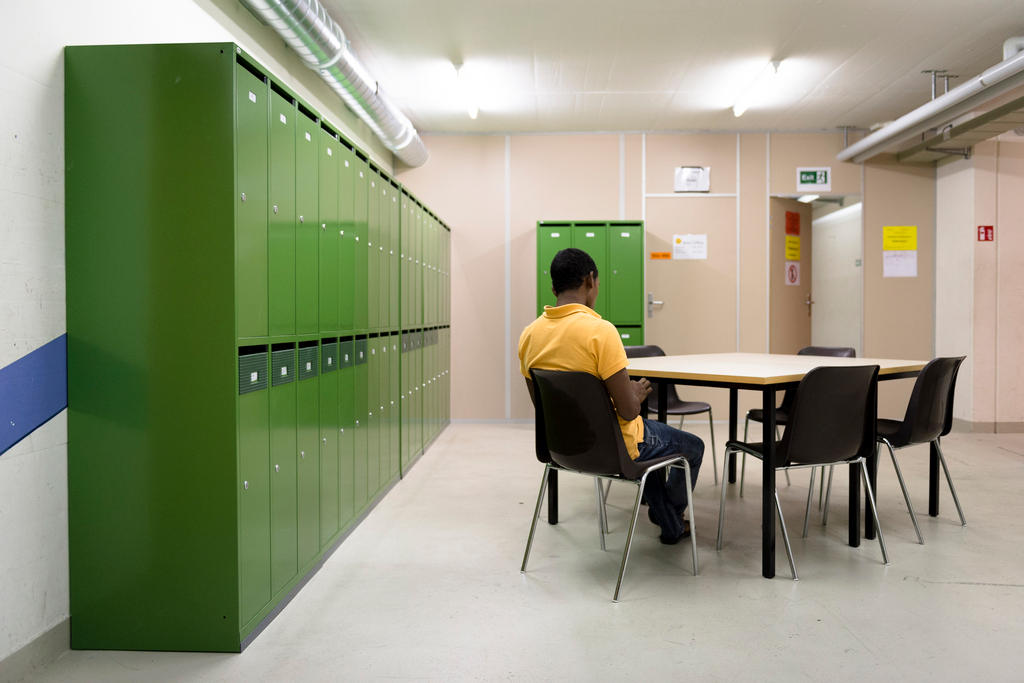Pilot programme for Muslim chaplains to be extended

A Zurich programme that employs Muslim chaplains in federal asylum centres has received a positive evaluation and will be extended until June 2018, the Swiss Secretariat for Migration (SEM) announced on Friday.
The chaplains act as intermediaries between the cultures of the asylum seekers’ countries of origin and that of Switzerland, and help to promote an “open and humanist” Islam, the SEM said in a statement.
The pilot programme was launched by the SEM in July 2016, in collaboration with the umbrella association of Islamic Organisations in Zurich (VIOZ). It employs three Muslim chaplains at a rate of 70% at the Juch asylum centre in Zurich.
+ Muslim chaplaincy for asylum-seekers launched
According to a report by the Swiss Centre for Islam and Society (CSIS) at the University of Fribourg, which was charged with evaluating the programme after one year, the asylum seekers as well as asylum centre collaborators and Christian chaplains believe the programme brings “real added value”.
“In leading by their example coupled with the message that they convey, Muslim chaplains transcend the alleged divisions between Islam and western visions of society. In doing so, they are able to neutralise the breeding ground for extremist views”, the report said.
It added that the benefits of the programme were not only religious.
“While a good three quarters of those who availed of the chaplaincy service were Muslim, nearly one quarter were either of a different faith or did not belong to any religion,” the report said.
“Thanks to close cooperation, the Muslim chaplains and the centre’s health care team were able to address applicants’ physical and mental health concerns within their particular area of competence and responsibility.”
Training and financing still need work
The report says the criteria used to select partner organisations and recruit the chaplains could be used again if the project is extended to other asylum centres, but that the training and continuing education for Muslim chaplains should be improved. The SEM suggests a curriculum focusing on chaplaincy services, the relationship between church and state, and interfaith collaborations.
The question of financing Muslim chaplaincy programmes long-term is still open, the SEM added. In Switzerland, Christian chaplains are supported by Swiss national churches, but Muslim organisations are not able to finance such training and there is currently no legal basis for the Swiss government to cover the costs. The SEM estimates that employing Muslim chaplains in all federal asylum centers in the country would cost CHF1 million ($1.08 million) per year.
At present, chaplaincy services in federal centres for asylum seekers are supported by the Federation of Protestant Churches of Switzerland, the Swiss Bishops’ Conference, the Catholic-Christian Churches of Switzerland, and the Swiss Federation of Jewish Communities in collaboration with the cantonal churches. They have signed a framework agreement with the SEM.

In compliance with the JTI standards
More: SWI swissinfo.ch certified by the Journalism Trust Initiative



You can find an overview of ongoing debates with our journalists here. Please join us!
If you want to start a conversation about a topic raised in this article or want to report factual errors, email us at english@swissinfo.ch.